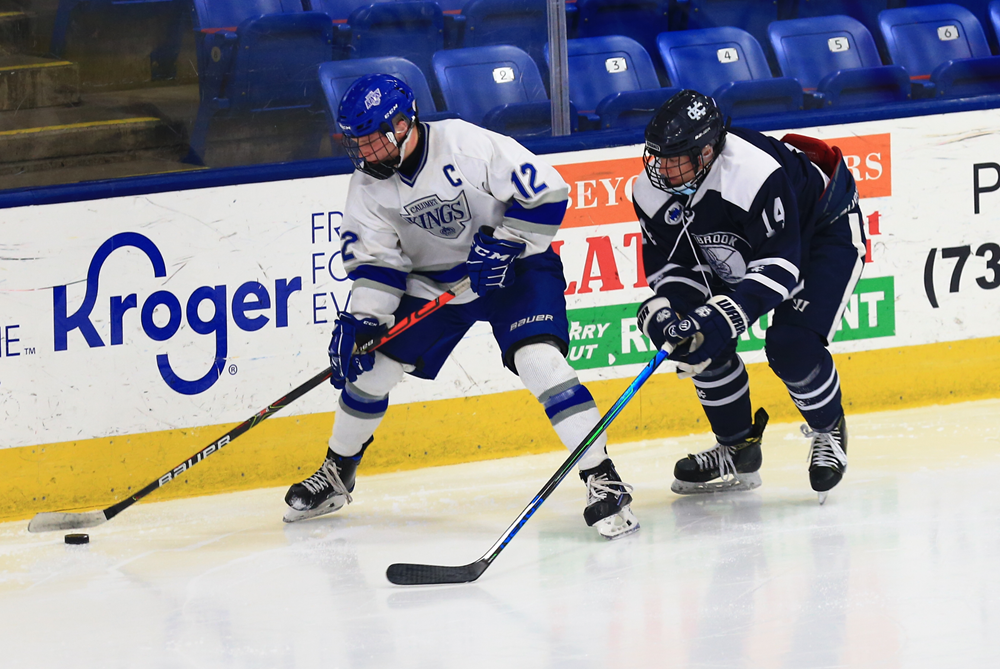
Be the Referee: YMTC - Face Guarding
September 6, 2018
In this week's edition, MHSAA officials coordinator Sam Davis takes us through a "You Make the Call" scenario regarding football face guarding.
Be The Referee is a series of short messages designed to help educate people on the rules of different sports, to help them better understand the art of officiating, and to recruit officials.
Below is this week's segment – You Make the Call: Face Guarding - Listen
Let’s check out your knowledge of high school football rules with a “you make the call.”
The quarterback drops back to pass, and his intended receiver gets a step on the cornerback. As the ball approaches the receiver, the defensive player sticks his hands and arms out in front of the receiver’s face without contact. The receiver loses sight of the ball, and the pass falls to the ground.
What’s the call?
A national high school playing rule instituted last year removed the penalty for face guarding without contact. The change brought high school football rules in line with collegiate and professional rules. The pass is incomplete and there is no flag for defensive pass interference.
Past editions
August 30: 40-Second Play Clock - Listen
August 23: Football Rules Changes - Listen

Be the Referee: Unsuspecting Hockey Hits
By
Paige Winne
MHSAA Marketing & Social Media Coordinator
December 19, 2023
Be The Referee is a series of short messages designed to help educate people on the rules of different sports, to help them better understand the art of officiating, and to recruit officials.
Below is this week's segment – Unsuspecting Hockey Hits - Listen
We’re on the ice today and we’ve got two players, one from the home team, one from the away team, trying to gain control of the puck.
As they are jockeying for the puck, a second home team player comes in and checks the away team player – allowing the home team to gain possession.
Is this physical contact by the second player allowed?
If the opposing player is in an unsuspecting or vulnerable position – then no, it is not allowed and the aggressor should be penalized.
This is a point of emphasis for the 2023-24 season which aims to remove unsuspecting hits to defenseless or vulnerable players.
Previous Editions
Dec. 12: No More One-And-Ones - Listen
Nov. 21: Football Finals Replay - Listen
Nov. 14: Volleyball Unplayable Areas - Listen
Nov. 7: Pass/Kick Off Crossbar - Listen
Oct. 31: Cross Country Interference - Listen
Oct. 24: Soccer Overtime - Listen
Oct. 17: Tennis Spin - Listen
Oct. 10: Blocked Kick - Listen
Oct. 3: Volleyball Double & Lift - Listen
Sept. 26: Registration Process - Listen
Sept. 20: Animal Interference - Listen
Sept. 13: Feet Rule on Soccer Throw-In - Listen
Sept. 6: Volleyball Jewelry - Listen
Aug. 30: Football Rules Similarities - Listen
Aug. 23: Football Rules Differences - Listen

